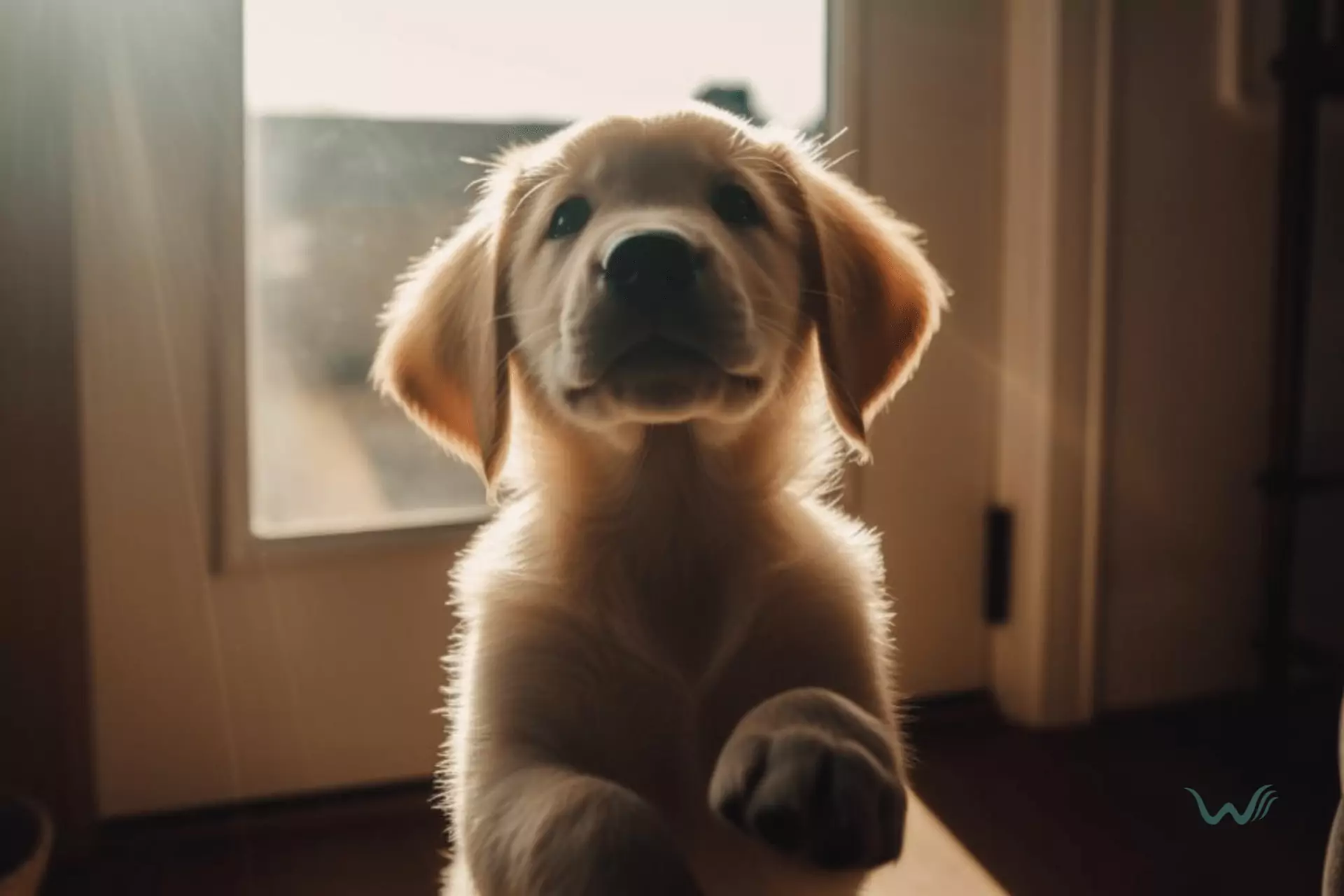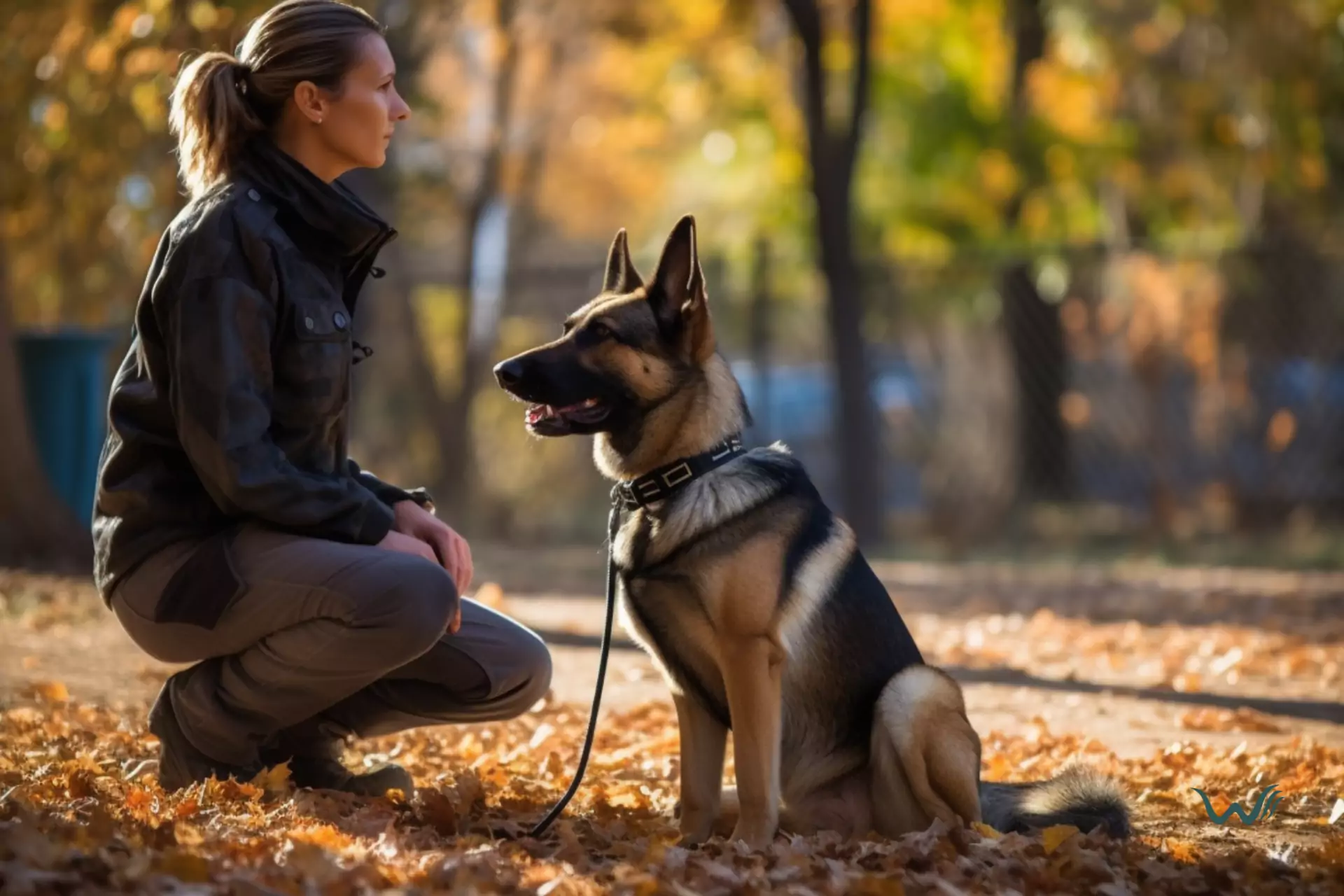

Using Rewards To Reinforce Housebreaking With Puppies
by Tayyaba Amir
Last updated: April 21, 2024
Verified and Approved by:
Angela Morris,
MSW, LCSW
Fact Checked

Housebreaking can be a challenging task, but with the right approach, it can also be a rewarding and positive experience for both you and your furry friend. In this article, we will explore the power of using rewards to reinforce housebreaking with puppies, and how it can make the process much smoother for everyone involved.
Now, you might be thinking, “But won’t using rewards just spoil my puppy?” It’s a valid concern, but rest assured, using rewards in housebreaking is not about spoiling your puppy. Instead, it’s about creating a positive association with the desired behavior, which will encourage your puppy to repeat it.
Just like humans, puppies respond well to positive reinforcement. When they receive a reward for doing something right, such as going potty outside, they are more likely to remember and repeat that behavior in the future. So, rather than scolding or punishing your puppy for accidents, focus on rewarding them for going in the right place. This positive approach will not only speed up the housebreaking process but also strengthen the bond between you and your puppy.
Key Takeaways
- Positive reinforcement, such as treats and praise, is essential for encouraging puppies to repeat desired housebreaking behaviors.
- Establishing a consistent routine and sticking to a regular schedule is important for successful housebreaking.
- Troubleshooting challenges, like accidents in the house, can be addressed through increased supervision and reinforcement of the rewards system.
- Crate training can be beneficial for helping puppies develop bladder control and prevent accidents.
Understanding the Importance of Positive Reinforcement
When it comes to housebreaking, consistency, and positive reinforcement go hand in hand. By providing rewards, such as treats or praise, you are not only encouraging your puppy to continue their good behavior, but you are also building a strong bond and trust between the two of you.
Using rewards to reinforce housebreaking behaviors is essential because it helps your puppy understand what is expected of them. When they successfully eliminate in the designated area, rewarding them with a treat or a pat on the head lets them know that they have done something right. This positive association creates a positive cycle, where your puppy will be more motivated to repeat the behavior to receive the reward.
Furthermore, using rewards in housebreaking training also helps prevent any negative associations or fears that might arise from punishment-based methods. By focusing on positive reinforcement, you are creating a safe and nurturing environment for your puppy, where they can learn and grow at their own pace. This not only makes the training process more enjoyable for both of you, but it also sets the foundation for a lifetime of positive interactions and behaviors.
Understanding the importance of positive reinforcement and using rewards in housebreaking training is essential for a successful and harmonious relationship with your puppy. By consistently rewarding their good behavior, you are not only reinforcing the housebreaking habits you desire, but you are also fostering a strong bond and trust between you and your furry friend.
Choosing the Right Rewards for Housebreaking
When it comes to helping your furry friend learn where to go potty, it’s essential to select the perfect incentives. Choosing the right rewards can make a world of difference in the housebreaking process.
Here are four types of rewards that can motivate your puppy and reinforce good bathroom habits:
- Treats: Treats are a classic option for rewarding your puppy’s good behavior. Choose small, bite-sized treats that are tasty and easy to consume. Keep a stash of treats handy during the housebreaking process, and offer them as a reward immediately after your puppy successfully goes potty in the designated area.
- Verbal praise: Don’t underestimate the power of your words! Dogs thrive on positive reinforcement, so be sure to shower your puppy with plenty of verbal praise when they do their business in the right spot. Use an upbeat and enthusiastic tone to let them know they’ve done a great job.
- Playtime: Some puppies are highly motivated by playtime. Use this to your advantage by incorporating play as a reward for going potty in the correct area. After your puppy does their business, engage in a fun game or play with their favorite toy. This will create a positive association with going potty in the right place.
- Physical affection: Many puppies respond well to physical affection as a reward. After your puppy successfully goes potty, give them a gentle pat on the head, a scratch behind the ears, or a belly rub. This physical touch can reinforce their good behavior and make them feel loved and appreciated.
Every puppy is unique, so it may take some trial and error to find the rewards that work best for your furry friend. Stay patient and consistent, and soon your puppy will be housebroken with the help of the perfect incentives.
Establishing a Consistent Routine
Establishing a consistent routine is important for successfully training your young dog, as studies have shown that 87% of puppies who follow a regular schedule are more likely to be fully housebroken within a few weeks. By providing your furry friend with a consistent routine, you’re not only helping them learn when and where to go potty, but you’re also setting them up for success in other areas of their life. Dogs thrive on structure and routine, so by establishing a consistent schedule, you’re fulfilling their subconscious desire for stability and order.
When it comes to housebreaking, consistency is key. Set specific times throughout the day for your puppy to go outside and make sure to stick to these times as closely as possible. Take them out first thing in the morning, after meals, after naps, and before bed. By consistently taking them outside at these specific times, you’re teaching them that this is the appropriate time and place to go potty. Additionally, be sure to take them to the same spot in your yard each time, as the familiar scent will help reinforce the behavior you’re trying to teach.
Using Rewards to Reinforce Good Behavior
Get ready to see your puppy’s behavior improve dramatically as you start using treats to reward their progress. Puppies are highly motivated by food, and by using treats as a reward, you can reinforce their good behavior during the housebreaking process.
Whenever your puppy successfully goes to the bathroom outside, immediately praise them and give them a treat. This positive reinforcement will help them understand that going outside is the desired behavior. Make sure to choose small, bite-sized treats that your puppy loves, so that they’re eager to earn them.
In addition to treats, you can also use verbal praise and physical affection as rewards. After your puppy successfully goes to the bathroom outside, give them lots of praise and petting. Use an enthusiastic tone of voice and let them know how proud you are of them. This positive feedback will further reinforce their good behavior and make them more likely to continue it in the future.
As your puppy’s behavior improves, you can gradually reduce the frequency of treats and rely more on verbal praise and affection. With time and patience, your puppy will learn to associate going outside with positive reinforcement, making housebreaking a much smoother and more enjoyable process for both of you.
Troubleshooting Common Challenges
Addressing the recurrent roadblocks that may arise when training your furry friend to become housebroken can be a challenging task. However, with patience and the right approach, you can overcome these common challenges. One common issue is that puppies may have accidents in the house even after they have started to understand the concept of housebreaking. In this case, it’s important not to get discouraged and to continue with the training process. It may be helpful to revisit the basics and reinforce the rewards system.
| Challenge | Solution |
|---|---|
| Puppies having accidents in the house | Increase supervision and take them outside more frequently. Clean accidents with an enzymatic cleaner to remove the scent. |
| Puppies not understanding where to go | Use verbal cues and take them to the designated potty area consistently. Reward them when they go in the right place. |
| Puppies being scared or anxious outside | Gradually introduce them to the outside environment, starting with short and positive experiences. Use treats and praise to make it a positive experience. |
| Puppies having accidents when left alone | Gradually increase the duration of time they are left alone and provide them with appropriate bathroom breaks. Consider crate training to help with their bladder control. |
Stick to a regular schedule, reward your puppy for going in the right place, and be patient. Soon enough, they will understand what is expected of them and become fully housebroken. Keep in mind that accidents may happen along the way, but with positive reinforcement and a bit of troubleshooting, you can overcome these challenges and have a well-trained and housebroken furry friend.
Frequently Asked Questions
How long does it typically take to housebreak a puppy using positive reinforcement?
Housebreaking a puppy using positive reinforcement can take anywhere from a few weeks to several months. It depends on the individual puppy and their ability to learn, as well as the consistency and dedication of the owner in using rewards effectively.
Can I use punishment or scolding as a way to discourage my puppy from having accidents indoors?
Using punishment or scolding is not recommended for discouraging accidents indoors. It can create fear and anxiety in your puppy, hindering the housebreaking process. Focus on positive reinforcement and rewards to effectively teach your puppy where to go.
Are there any specific rewards that are more effective for housebreaking compared to others?
To effectively housebreak your puppy, use irresistible rewards that make them feel like they’ve won the lottery! Treats like soft, savory bacon or a belly rub that melts their heart will motivate them to do their business outside.
Should I use the same rewards for all types of good behavior, or should I vary them depending on the situation?
When it comes to using rewards for good behavior, it’s important to vary them depending on the situation. This keeps things interesting and helps your puppy stay motivated. Mix it up and watch their progress soar!
What should I do if my puppy continues to have accidents indoors despite using positive reinforcement and rewards?
If your puppy continues to have accidents indoors despite positive reinforcement, it’s important to assess why. Review your housebreaking routine, ensure consistency, and consider consulting a professional trainer for guidance. Patience and persistence will pay off!
Certify Your Emotional Support Animal Today

Why You Can Rely on Us?
At Wellness Wag, we believe your pet deserves care rooted in both science and compassion. Each article is carefully researched, written in clear language for pet owners, and then reviewed by qualified professionals to ensure the information is evidence-based, current, and practical for real-life care. Our goal is to help you feel confident in making informed decisions about your pet’s health and well-being.
Reviewed by
Angela Morris, MSW, LCSW
Angela is a licensed clinical social worker with 20 years of experience in patient advocacy and community mental health. She has assisted numerous clients with ESA evaluations and brings a deep understanding of disability accommodations, ensuring that all information is accurate, supportive, and practical.

Written by :
Tayyaba Amir
Last Updated :
April 21, 2024










